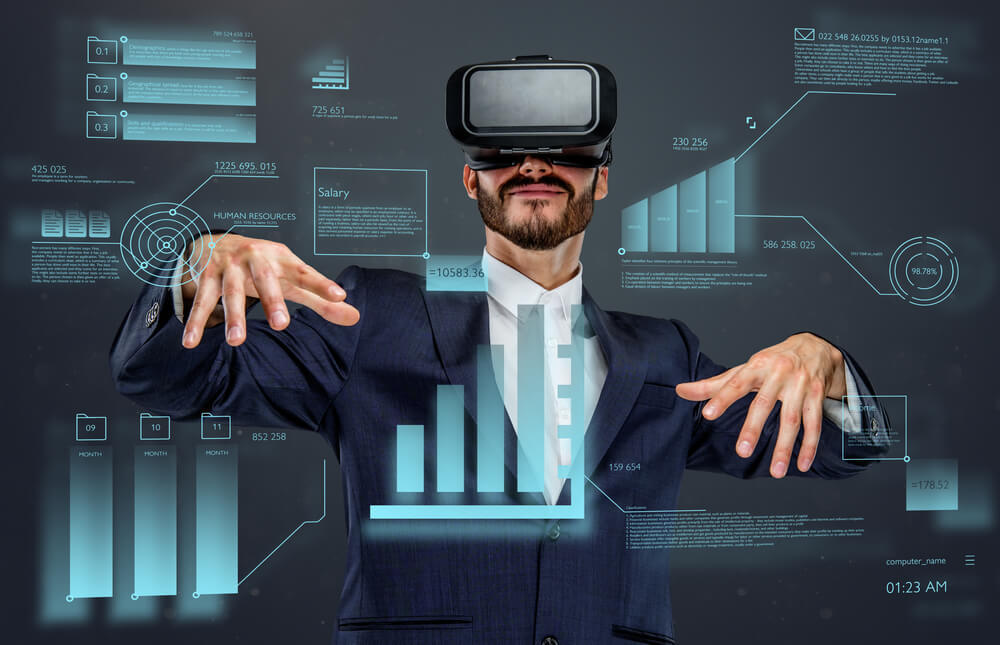Since the dawn of time, the question of what technology will be like in the future has captivated the minds of the people. The future holds boundless potential, encompassing technological advancements, innovative learning approaches, and a myriad of other possibilities.
What Lies Ahead in The Future?

This subject is a source of fascination for various reasons. The infinite range of possibilities regarding future life can be exciting and terrifying all at once, characterized by uncertainty, unknownness, and unpredictability. Although providing a definitive answer to the question of what the future holds remains elusive, numerous individuals have ventured to make predictions.
Things Change Fast!
For an extended period, historical progress appeared to move slowly, with life evolving steadily. However, recent years have witnessed unprecedented and sweeping transformations. Merely two decades ago, life was significantly different from today’s. Technological advancements are the primary catalysts for these shifts, permeating virtually every aspect of existence. Reflecting on the tremendous changes that have transpired in the past ten to twenty years, coupled with the rapid pace at which technology continues to advance, it becomes evident that the possibilities for future life are limitless.
The Future of Food
One of the most significant factors that will shape the future of food is the mounting concern about climate change. In response to this global issue, attitudes surrounding food sustainability and production have undergone dramatic changes in recent times. Adopting vegan or plant-based diets and the conscious effort to source food from local and ethically responsible providers have witnessed an upward trajectory. These shifts in dietary practices are likely to increase as time progresses.
Another factor that will significantly impact the future of our food supply is the ever-expanding global population. As the population continues to grow, the demand for food will increase accordingly. However, a critical challenge arises as the number of people increases, but the available land for food production remains the same. This scarcity of land poses a pressing issue, especially considering the projected global population of 10 billion by 2050. Consequently, addressing the land shortage becomes imperative. Adapting the type of food we consume and revolutionizing our food production methods are essential in accommodating the growing population.
Experts anticipate that future diets will feature a variety of new and intriguing food sources, including:
- lab-grown meat
- edible insects
- seaweed
- more plant-based food
These emerging food trends reflect the need to explore innovative solutions to ensure food security for a growing global population while mitigating the environmental challenges we face. By embracing these alternative food sources and production methods, we can adapt to the demands of the future and foster a more sustainable food system.
The Future of Work
Technology stands as the primary force shaping the future of work. There has long been concern that robots and automation would replace human workers entirely, leaving little employment opportunities. While this is not the case, technology continues to permeate workplaces at an increasing rate. Experts predict that specific jobs humans perform will eventually be fully automated. These jobs include:
- Taxi drivers are being replaced by self-driving cars.
- Receptionists and front-of-house staff being substituted by machines capable of welcoming and assisting guests/clients.
- Travel agents are being displaced by online platforms that facilitate holiday planning.
These examples represent a few occupations that could potentially be entirely carried out by technology in the future.
As traditional jobs become obsolete, fresh employment prospects will surface, predominantly centered around technology. Increasing demand is expected for computer engineers and technicians to ensure the seamless operation of diverse technologies. Additionally, there is likely to be a growing need for programmers who can innovate and develop new technologies.
Moreover, evolving lifestyle trends in the future will give rise to a variety of novel professions. An example is vertical farming, a method where crops are grown in vertically stacked layers to save space, leading to an increased demand for vertical farmers. Additionally, with the anticipated reality of commercial space travel, new jobs such as space travel tour guides are expected to emerge.
The concept of remote working represents another significant shift in the world of work, gaining momentum in recent years and poised to be embraced by more businesses. This working style allows employees to carry out their tasks from home while staying connected to their workplaces through laptops. Its popularity surged during the pandemic and has proven to be enduring. Although remote working has drawbacks, such as a lack of community and reduced social interaction, its prevalence is expected to rise.
These foreseen changes in the future of work underscore the transformative impact of technology and evolving lifestyles. By adapting to these shifts, individuals and organizations can navigate the changing landscape, embracing new opportunities and modes of employment.
The Future of Education
In the imminent wave of workplace transformation, the field of education is poised for substantial evolution. Similar to the rise of remote working, there is an anticipation of a surge in remote learning. Students are expected to increasingly turn to online educational platforms instead of traditional face-to-face instruction, necessitating educators to recalibrate their teaching strategies and materials to align with this digital shift.
The transition to online learning gives students a heightened degree of flexibility regarding when and where they engage with educational content. Notably, this shift empowers students to progress at their own pace without hindering their peers’ advancement.
Furthermore, the trajectory of education appears destined for greater personalization, influenced significantly by the shift to online learning. Educators will be able to tailor assignments to individual skill levels, enhancing the efficacy of learning without impacting the collective progress of the student body. This personalized educational approach is expected to mitigate comparisons among students, fostering a more focused and conducive learning environment. Concurrently, educators will have enhanced tools to monitor and assess the ongoing progress of their students meticulously.
These anticipated evolutions in the future of education underscore the seamless integration of technology and a pronounced shift toward personalized learning experiences. By embracing these transformations, educators can adeptly cultivate flexible and effective learning environments tailored to each student’s unique needs and capabilities.
The Future of Health
Technological advancements in the health sector have been substantial, although we have not yet achieved the ability to grow new bones instantly like in the world of Harry Potter. Nonetheless, progress is being made.
Rather than primarily focusing on cures, the future of the health industry is likely to emphasize prevention. Scientists continuously discover new methods to access and analyze health data, providing insights on how to preserve well-being. Utilizing this data, they can propose various strategies for individuals to monitor and maintain their health daily. The goal is to decrease the number of hospitalizations, as hospitals are expensive to run.
Another notable change in the health industry, which gained popularity during the pandemic, is the rise of remote doctor’s appointments. Doctors are often overwhelmed with their schedules; securing an appointment can be challenging and sometimes impossible. As a result, more people opt for online doctor’s appointments due to their cost-effectiveness and time efficiency. However, it is essential to note that these appointments have downsides, such as being less personal and thorough than in-person visits.
The Future of Technology
Technology stands as the driving force behind the majority of forthcoming changes. It is impossible to discuss “what will life be like in the future?” without acknowledging its influence.
Given its pervasive nature, future technological advancements will encompass many areas. Some potential advancements we may witness include:
- Enhanced electric cars with improved efficiency.
- Personal aircraft that become more accessible for casual or everyday use.
- Advancements in private space travel and the emergence of space tourism.
- Expansion of drone delivery services.
Moreover, there will likely be a heightened reliance on technology across all aspects of our lives.
Naturally, the future remains uncertain, as it encompasses the realm of the unknown. However, experts assert three key expectations regarding future technology: it will become smaller, smarter, and more affordable.
FAQ’s – Frequently Asked Questions
1. How will AI shape our daily lives in the future?
The potential for AI to improve everyday life has fascinated everyone. Imagine assistant bots with a complete grasp of your schedule, able to lend a helpful hand at any time. They’d get to know your habits and needs and tailor suggestions perfectly for your situation. It would be so convenient to have personalized advice and support only a tap away. While we don’t have that capability yet, let’s look forward to the day technology reaches that level of intuitive assistance. At the same time, ensuring our privacy as technology evolves will be very important. It’s a matter of significant consideration how we’ll balance convenience with security as AI becomes deeply integrated into our routines.
2. Can we anticipate groundbreaking transformations in healthcare through upcoming technological advancements?
Innovations are on the horizon to make anyone optimistic about where healthcare may be headed. Can you believe they’ll soon craft individualized treatments based on our unique genetic blueprints? And telehealth allows us to see the doctor from home – a convenient game changer! These advances will elevate the care people receive while making it more accessible for communities in need.
3. In what ways will quantum computing reshape the technological landscape?
Quantum computers promise to vastly supercharge computing power and tackle problems that classical machines can’t crack. The implications for fields like finance and cybersecurity have made you daydream about the possibilities. At the same time, ensuring this powerful new technology is developed and applied responsibly will be paramount as breakthroughs are made.
4. What impact will renewable energy have on the future of technology?
Sustainable practices will play a defining role in shaping future innovations. The renewable technologies we’ll see as environmental stewardship takes priority. Solar breakthroughs and battery advancements feel crucial for the planet and for powering tomorrow’s tools. How exciting to think the solutions that energize our devices may soon have lesser impacts on the world around us. A bright future if we make eco-friendly choices the norm.
5. How will the metaverse redefine our digital interactions?
Merging virtual and augmented realities into shared online worlds – the “metaverse” concept fascinates me. Gaming without limits, working remotely in new dimensions, connecting face-to-face when distances separate us. Yet digital identity protection, accessibility for all, and ensuring these spaces foster inclusion will be vital as we reshape how we interact digitally.

